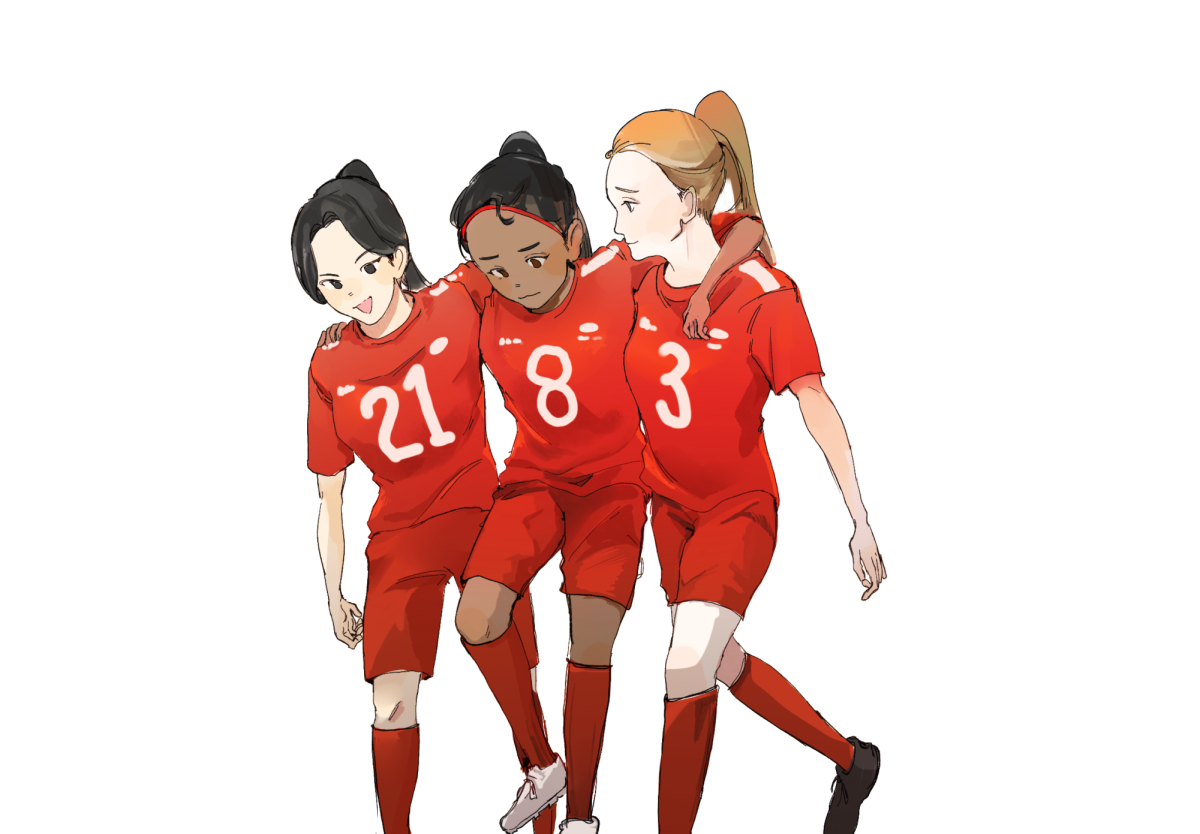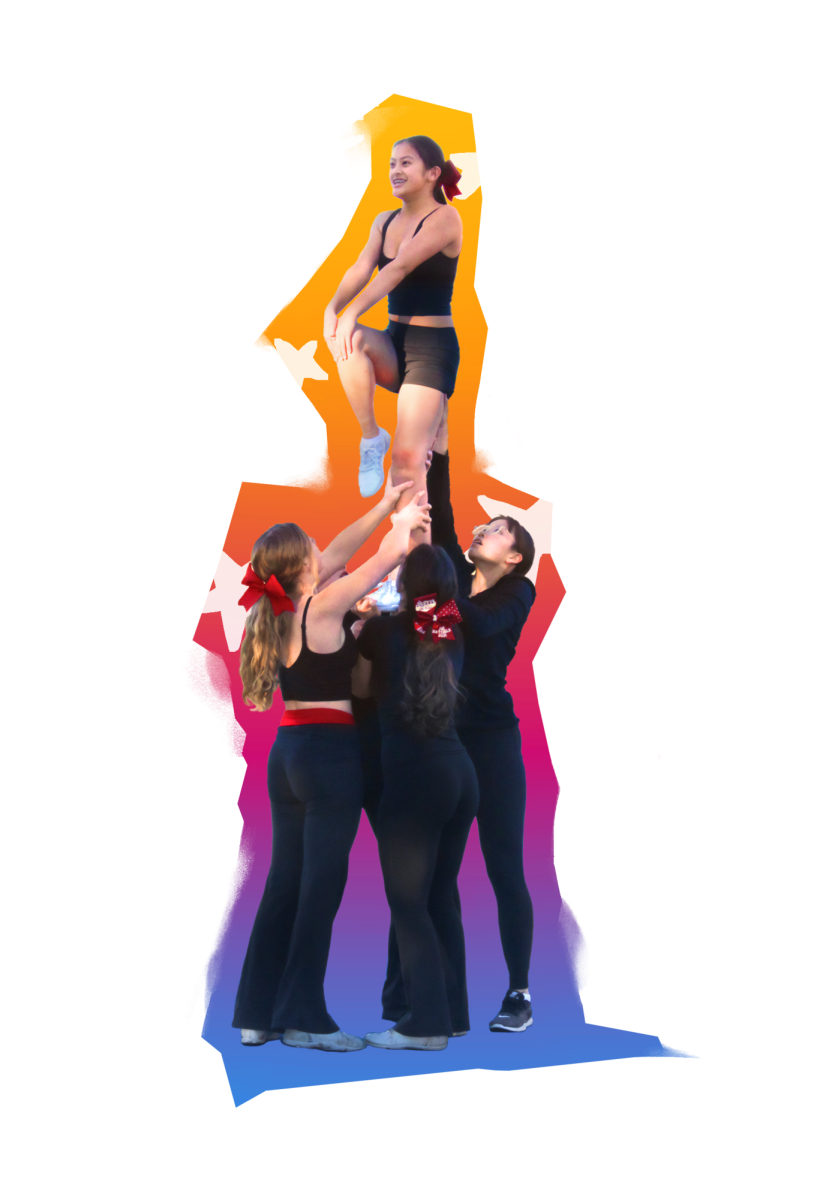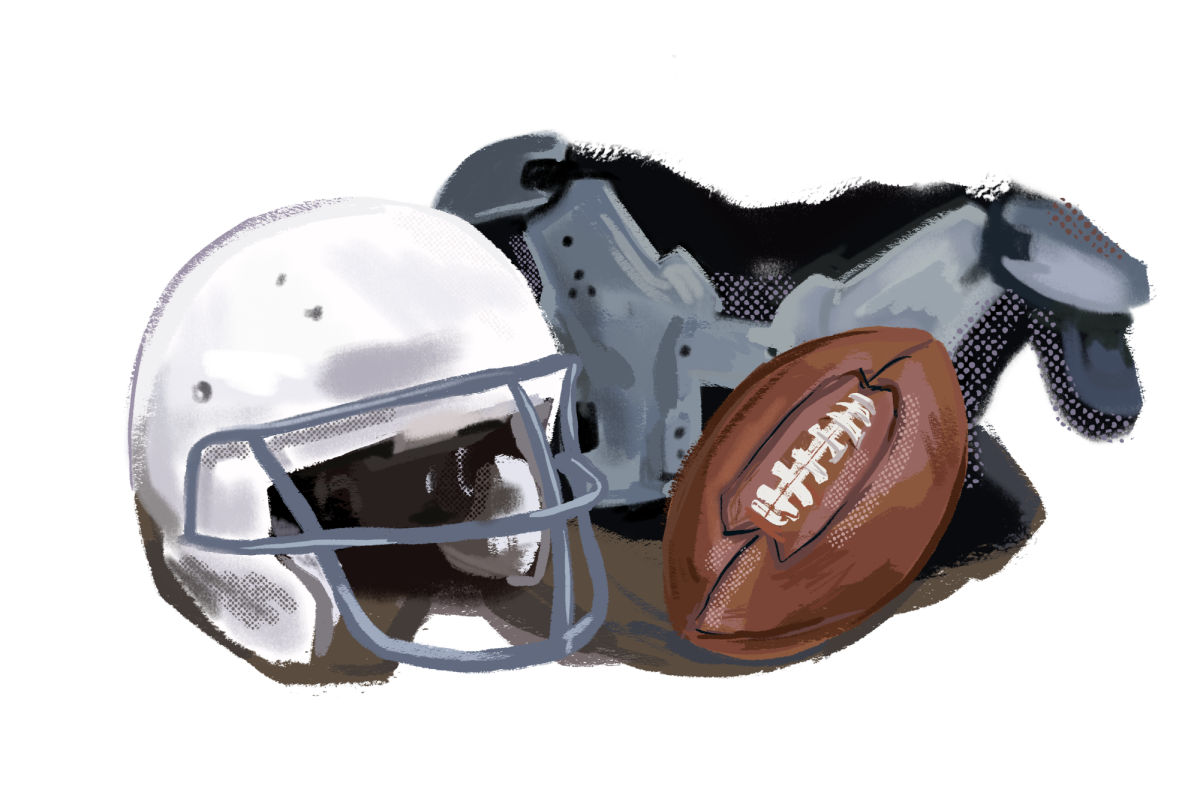The line between sports and politics has shifted significantly over the years, and recent events have thrust athletes’ political advocacy to the forefront. With the surge of social media, fans experience their favorite players through the duality of official television coverage and prominence on online platforms. The NBA has amassed 8.8 million Instagram followers, which surpasses that of any major United States sports league, the NFL posts viral football coverage videos on TikTok, and athletes themselves engage directly with their fans across various platforms. With increased media consumption, athlete coverage is larger, more visible and more personal than ever before.
For history teacher Chris Johnson and many other sports fans, this prompts a broader question: Do athletes have a greater responsibility to speak up in politics or should they just “shut up and play”?
“You can go back to the ‘68 Olympics in Mexico City, when you have the Black Power Salute,” he said. “(Political activism) was much more subtle, but I think it’s more overt now, because athletes can be almost grouped with A-list celebrities. The spotlight is on (athletes), especially with televised sports.”
The past decade has seen a surge in athletes taking bold, public political stances. Among one of the most notable examples is San Francisco 49ers quarterback Colin Kaepernick taking a knee during the National anthem in 2016 to protest systemic racial injustice and police brutality against Black Americans. He and his former teammate Eric Reid have signed confidential agreements settling claims that team owners conspired to excommunicate them for their
protest. In response, in 2017, former president Donald Trump called for Kaepernick to be fired for his protest.
Although the NFL maneuvered to address public ostracization of Kaepernick, reinforcing free speech and representation, Kaepernick was unable to restore his football career to its original stature. In other cases, however, fans have difficulty understanding an athlete’s actions. After hitting a double in July, Tampa Bay Rays shortstop Taylor
Walls covered his ear with one hand and pumped his fist in the air, mimicking Trump’s gesture after his
assassination attempt in Pennsylvania. Walls said that his Trump-inspired celebration was not intended
as a political endorsement, but instead, a compliment to the former president’s “inspirational behavior.” Actions like these blur the line between symbolism and endorsement and call into question fans’ abilities to discern the two in complex situations.
With socio-political pressures on the rise, athletes and the majority of Americans have come to terms with one
thing: 69% of Democrats, Independents and Republicans support athletes advocating for general voting rights,
according to a 2023 poll by the Washington Post. However, Kansas City Chiefs quarterback Patrick Mahomes said in a September news conference that he would not endorse Donald Trump or Kamala Harris in the November election despite Trump repeatedly referring to Mahomes’ wife, Brittany, as a supporter of his campaign.
“I don’t want my place and my platform to be used to endorse a candidate,” he said during the press conference. “My place is to inform people to do their own research and then make the best decision for them and their family.”
Striking a similar chord, sports fan and junior Aakash Koneru believes that professional athletes’ jobs are primarily to play. Even if he disagrees with their views, he continues to support their sports and separates athletic
performance from political stances.
“It’s up to the people to call them out or decide if they agree or disagree,” he said. “Because, once again, I think athletes have their platform and are paid because of their athletics. I don’t care about the things that are on the other side. At the same time, I wouldn’t say my own political beliefs are really shaped by what their beliefs are because I like (them) as basketball players, not as politicians.”
Still, Koneru clarifies that sports figures being politically active is one form of expression, like in Golden State Warriors
head coach Steve Kerr’s speech at the Democratic National Convention in August and his impassioned
plea for gun control in 2022.
“If you truly care about an important issue, it’s good to speak out,” Koneru said. “Sports teams, at the end of the day, are made up of people who have opinions, and they’re not just about politics. I know Steve Kerr was part of the DNC and spoke out about a school shooting that happened in Texas. He was like, ‘What are we doing? We need to solve that,’ and athletes have the platform and followers to make something happen.”
According to The Athletic senior editor Rich Hammond, who has worked to cover many public athlete political displayers including Kaepernicks’, the 21st century generation of athlete activists mostly trace their roots back to legendary rousers such as Muhammad Ali and Tommie Smith, who took a stand against the Vietnam War and racial injustice, respectively, when doing so wasn’t as easy. Hammond also references Michael Jordan as a trailblazer by explicitly avoiding political activism during the launch of his sneaker line.
“(Reporters) were asking him about politics and why he didn’t express himself,” Hammond said. “He had a
famous quote of, ‘Well, Republicans buy sneakers too,’ meaning that (he might) offend half of the people out
there who are going to buy his Nike shoes.”
For Hammond, watching athletes like LeBron James speak out on topics like Black Lives Matter and police
brutality represents renewed athlete political influence.
“You see people who engage with that either positively or negatively, and say, ‘Yeah, I am interested in what
LeBron James says,’” he said. “Like anybody else, (as) the more people take interest in you and what you’re saying, the more you’re going to say it, right? So other athletes start coming forward and saying how they feel, and so, (political expression) is definitely becoming more prevalent.”






















